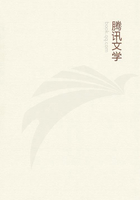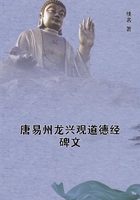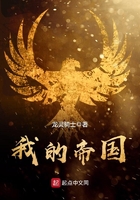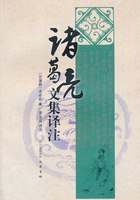The democratic element is less prominent in the constitution of the ancient Servian and Croatian folkmotes. At a very early period the high nobility and clergy took possession of the various powers of the popular assembly. But this does not mean that no documentary evidence has reached us concerning the part which the lower classes of society at least in Croatia, were anciently called upon to play in the political organisation of the country. The old Croatian chronicle explicitly states that in the time of Svonomir, the first elected Croatian chief, the "Ban," the national assembly known in later times under the name of "Sobor," was composed not only of the higher orders (viteze, barune, vlasnike), but also of the common people (puk zemlie).
The same common people is mentioned by the Latin chronicle as having had its share in the election of this first Ban, who was chosen "concordi totius cleri et populi electione." This happened in the second half of the eleventh century (1076). During the following centuries the nobility, and among them the higher class of nobles represented by seven Bans, alone had a direct influence on the nomination of the Croatian king. But the memory of old, days, when the people chose their rulers, was still preserved down to the end of the fifteenth century, as may be seen from the following words of a charter issued in 1490 by King Vladislas the second: "Domini, prelati et barones, caeterique pri mores et universi incoloe regni, ad quos scilicet jus eligendi novum regem ex vetustissima regni ipsius liberate et consuetudine devolutum exstiterat... oculos mentis ipsorum in nos conjecerunt."The texts already quoted establish the fact that like other Slavonic assemblies, the Sobors of Croatia were ignorant of the rights of the majority and insisted on the necessity of a unanimous decision. Expressions like "concordi electione,""omnibus collaudantibus," and the complete absence of any information concerning decisions taken by a majority of voters, leave no doubt on this point. The same texts mention several of the functions which the Sobor was called upon to exercise. and first among these was the election of the political heads of the nation, who might be simple bans or kings. Questions of peace and war were also settled by this assembly.
But the chief occupation of the Sobor was of a legislative character. From time to time the Chronicles state that "many good laws have been made" by this or that assembly, and Professor Bogisic has succeeded in tracing a whole list of the different statutes resulting from their deliberations.
The existence of these national councils did not prevent the people of different localities from meeting in some kind of provincial assemblies, and from exercising in them even legislative functions. An instance of this fact is presented by the island of Vinodol, the inhabitants of which in 1288 met in a kind of local folkmote -- at which certain men were chosen to make a general codification of old laws, the memory of which was still preserved. In this way was formed the celebrated statute of Vinodol, one of the chief sources of information as to the early law of the Southern Slavs.
The Servian States-General, although much less democratic than the Croatian, merit our attention on account of the great influence which they exercised on the management of public affairs. It is true that the Servian Sobor is rather a council of the higher orders, a sort of Anglo-Saxon Witenagemote, than a folkmote or popular assembly. The third estate was not admitted to its meetings either as a body or by representation, and one of the paragraphs of the celebrated code of Stefan Douschan (fourteenth century) even strictly forbids the peasants to meet in political assemblies. But the lower nobility, who afterwards played such a prominent part in the destinies of the Polish nation, regularly sat in those meetings side by side with the king, his council, the superior officers of State, the patriarch, the ecclesiastical synod, and the members of the higher nobility.
These orders taken together exercised pretty neatly all the functions of sovereignty. They made legal enactments, such as the code just mentioned, and they were the authors of the different amendments introduced into it in the course of time. They very often elected the king, and sometimes dethroned him. The archbishop and the provincial governors were also chosen by the Sobor, which likewise disposed of the public lands, and discussed the most important matters of civil and ecclesiastical government.
This rapid and rather superficial sketch of the early political institutions of the Slavs, may at least serve to show how considerable was the influence which the higher orders of society, and very often the common people, exercised in the management of the Slavonic State. My necessarily dry exposition of ancient chronicles and charters, cannot fail to recall the well-known passage in the "Germania" of Tacitus: "De minoribus principes consultant, de majoribus omnes." Like the old Germanic folkmote the Slavonic was a sort of supreme council, convened on certain exceptionally important occasions. During an interregnum all authority passed into its hands, and it was accordingly empowered to choose the future ruler of the land, and to declare under what conditions he was to be admitted to the exercise of the sovereign power. In the ordinary course of public affairs, the folkmote discussed important matters of civil, and in some countries even of ecclesiastical government. It pronounced on questions of war and peace, controlled the exercise of the legislative authority, and was sometimes even directly engaged in the making of new, and the codifying of ancient laws. Although its authority was less prominent in executive and judicial matters, yet it very often exercised the supreme right of dethroning a king, and of judging persons accused of high treason.















